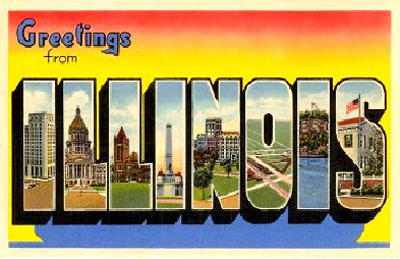 Illinois‘ continuing battle to legalize or not legalize expanded gambling in the state has taken different forms of life over the past years. Now, you can add two more iterations to that list.
Illinois‘ continuing battle to legalize or not legalize expanded gambling in the state has taken different forms of life over the past years. Now, you can add two more iterations to that list.
State representative Bob Rita has a new proposal on the table, or make that two proposals on the table. The hope is that Governor Pat Quinn will finally give his nod to one of them. That or the state is back on the drawing board – again.
One of Rita’s amendments to his bill would essentially create a mega-casino in Chicago but nothing else to any of the four new casino proposals from past amendments. The proposal would also include a provision that would cut-off horse racing tracks from any slot machines action. That’s Door number 1. Behind Door number 2 is a smaller Chicago casino and an even smaller positions for the four locations, including Rockford, Danville, Lake County and a suburb south of Chicago. Under this proposal, 600 slot machines would be allocated at each horse racing track within Cook County and 450 slot machines per race track outside the county, with the only exception being the Fairmount Park in the Metro East suburbs of St. Louis, which will get…nothing. Likewise, neither of these proposals would allow any of the state’s already existing casinos from expanding.
Rita’s objective is to mix his amendments to give lawmakers, especially the governor, fresh alternatives on how to get legislation moving forward.
Past attempts have failed on the door step of the governor, so convincing him is especially important to make that happen. That, of course, has proven to be easier said than done in large part because Quinn continues to assert his stance that legislation should do more to safeguard the industry against involvement of organized crime, as well as limit campaign contributions that would come from gambling businesses.
The state rep’s new amendments hopes to quell Quinn’s fears because of provisions specifically included to answer the latter’s concerns. One is to put Chicago gambling house under state ownership and regulation. The other is to limit the aforementioned campaign contributions from anybody with more than a percent interest in any company looking to acquire a casino license. That’s a significant drop from previous proposals, which had the number at 7.5 percent.
Ultimately, both proposals still have the same long-term objective and that’s to create more employment opportunities and generate the state annual revenues anywhere from $400 million to $1 billion.
“It’s going to produce a lot of money for education, a lot of money to put people back to work in capital (construction) and address concerns,” Rita said. “It’s two different approaches that I’d like to see which direction they’d like to go, the will of the General Assembly.”
